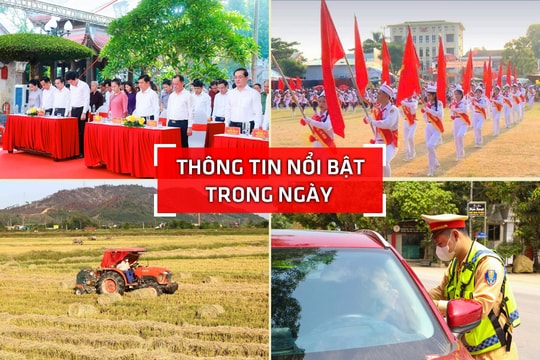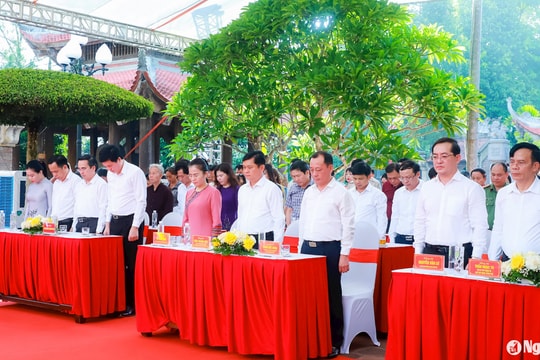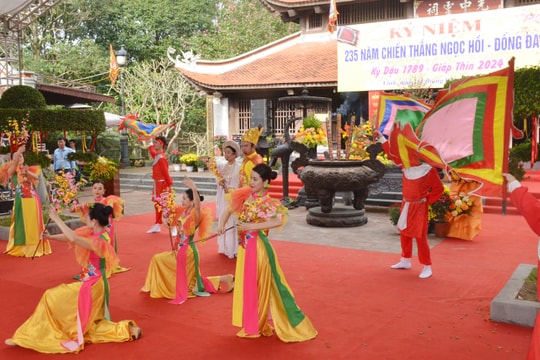Emperor Quang Trung with Nghe An land
(Baonghean.vn) - With an important position on the military-political map of Dai Viet in the 18th century, Nghe An became an important location in the work of eliminating the division and moving towards national unification of Emperor Quang Trung and the Tay Son dynasty.
Tay Son Uprising
When the peasant uprisings in Dang Ngoai temporarily subsided, the violent struggle movement against Lord Nguyen in Dang Trong broke out, culminating in the Tay Son uprising of the three brothers Nguyen Nhac, Nguyen Hue and Nguyen Lu.
The ancestors of the Tay Son dynasty were originally from the Ho family in Huong Cai village, Hung Nguyen district, Nghe An province. They followed Lord Nguyen to the South when they crossed Luy Thay to attack Le - Trinh land and reached Nghe An (1655) from the time of their great-grandfather Ho Phi Long. The grandfather of the Nguyen Nhac brothers was Ho Phi Tien. From their father's generation, they changed their surname to Nguyen following their mother's surname, Nguyen Phi Phuc. There is also an opinion that changing their surname to Nguyen was to follow the Lord's surname.
In the year of Tan Mao (1771), Nguyen Nhac, in the name of opposing the Deputy National Secretary Truong Phuc Loan, raised the flag of uprising in Tay Son (Binh Dinh). With the support of the people in the surrounding area, the uprising grew stronger and matured rapidly.
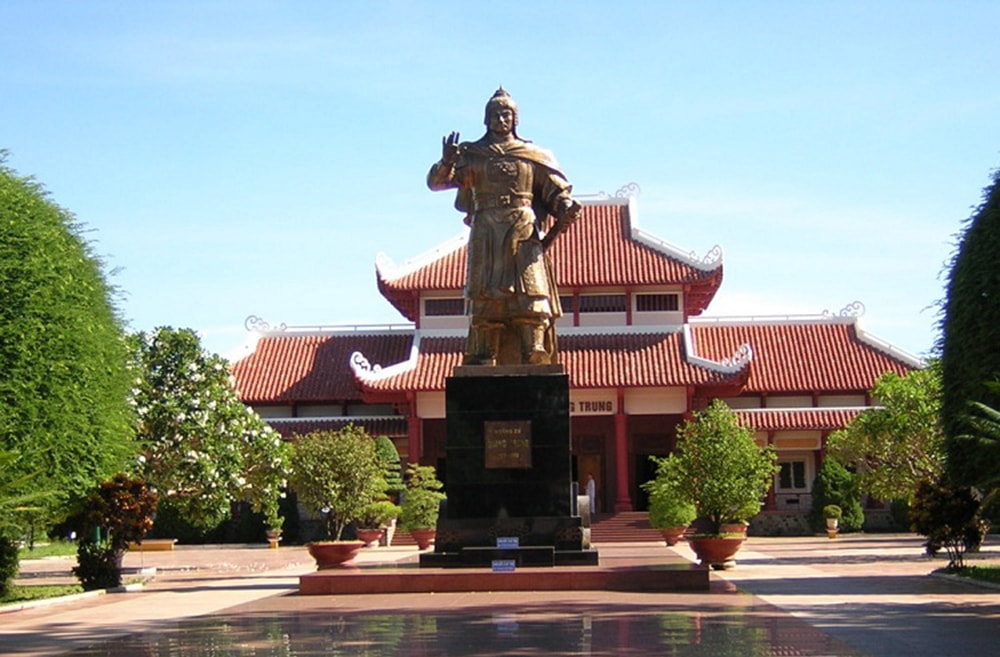 |
| Statue of Emperor Quang Trung at Quang Trung Museum (Binh Dinh). Photo: hiquynhon |
In September of the year Quy Ty (1773), the Tay Son army used a trick to capture Quy Nhon citadel, continuously defeated the Nguyen Lord's army, then attacked Quang Nam, Phu Yen, Khanh Hoa, and Binh Thuan. The Nguyen Lord signed a peace treaty with the Siamese, to have free hands to fight the Tay Son.
In the year of Mau Tuat (1778), Nguyen Nhac proclaimed himself King, established the Tay Son dynasty, named the year Thai Duc, and established the capital at Quy Nhon citadel.
In the year of Canh Ty (1780), Nguyen Anh proclaimed himself King. The Tay Son army attacked the South many times and pursued Nguyen Anh, but he always escaped.
In March of the year of Nham Dan (1782), Nguyen Hue led his army to attack Gia Dinh for the fourth time. Nguyen Anh sent someone to Siam to ask for help and then escaped to Phu Quoc Island. On the night of December 9th to the morning of December 10th of the year of Giap Thin (1784), Nguyen Hue and the Tay Son army defeated the Siamese army at Rach Gam - Xoai Mut.
In Bac Ha, in 1782, Trinh Sam died. His young son Trinh Can was installed, then was usurped and killed by Trinh Tong. Nguyen Huu Chinh, a native of Nghe An, abandoned Trinh Tong and fled to the South to surrender to Tay Son and was trusted by Nguyen Nhac.
Thang Long citadel was harassed and destroyed by the arrogant soldiers. In the year of Binh Ngo (1786), Bac Binh Vuong Nguyen Hue became the commander-in-chief and attacked the North, straight to Thang Long. Trinh Tong was captured and then committed suicide. On the way to the North by sea, the Tay Son army sent many groups of guerrilla soldiers to land and attack the Trinh army's posts in Nghe An and Thanh Hoa to gain prestige.
At Thang Long Bac Binh King Nguyen Hue returned the government to King Le but still held real power.
In July of the year Binh Ngo (1786), King Le Hien Tong passed away. Le Chieu Thong ascended the throne. Brothers Nguyen Hue and Nguyen Nhac withdrew their troops to the South, handing over power to Nguyen Huu Chinh.
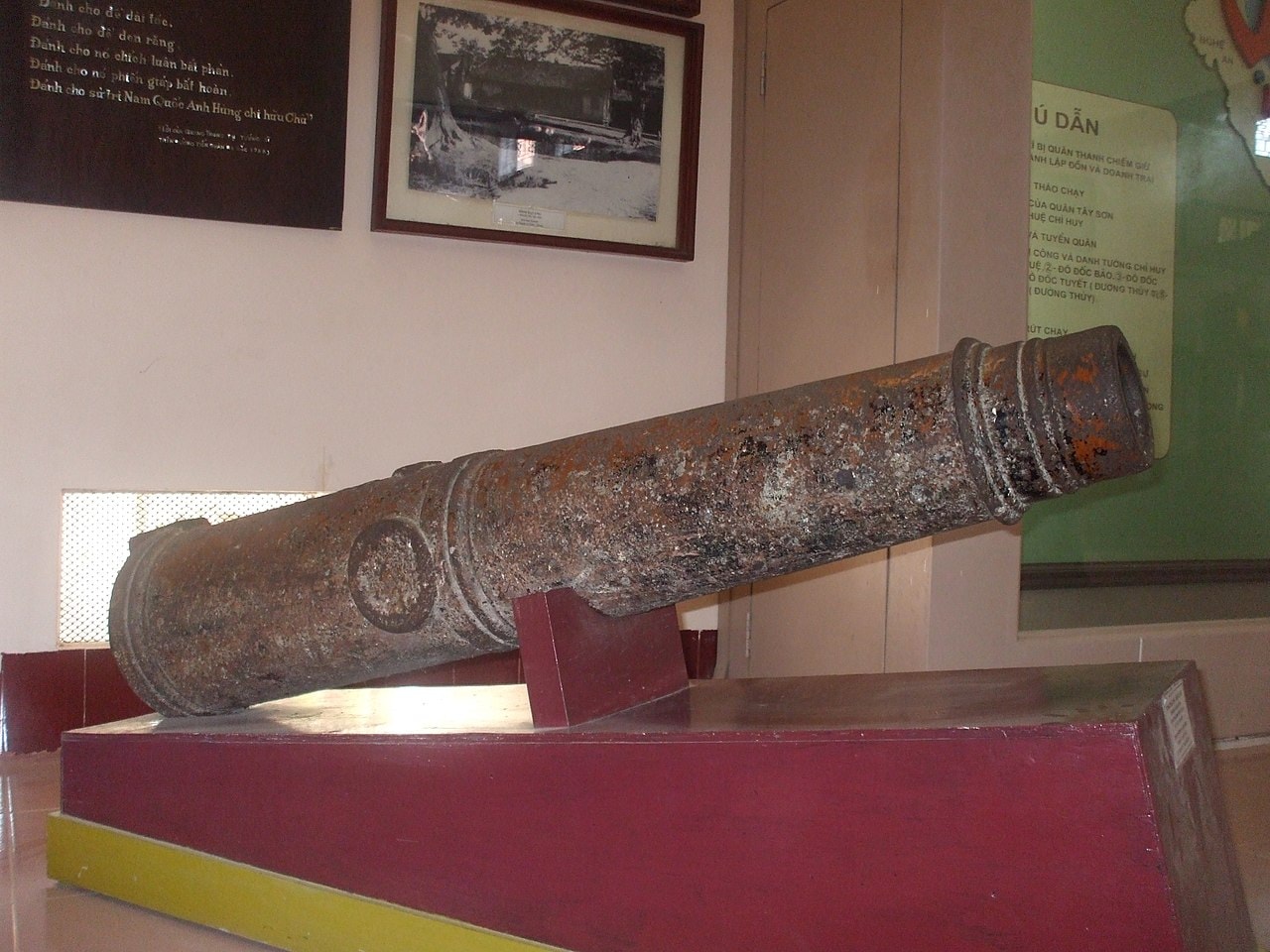 |
| The Tay Son army's cannon was found at the Tay Son naval base in Thi Nai port (Quy Nhon), and is currently on display at the Tay Son Museum (Binh Dinh). Photo: Wikipedia |
The remnants of Lord Trinh's army returned to harass Thang Long. Nguyen Huu Chinh from Nghe An suppressed them but continued to act like Lord Trinh before.
Due to disagreements in strategy, the Tay Son brothers had conflicts. In the beginning of the year Dinh Mui (1787), Nguyen Hue brought troops to attack Nguyen Nhac in Quy Nhon citadel. Nguyen Lu intervened and the brothers made peace, but it left serious consequences, and was exploited by enemies from both sides.
In April, Mau Than year (1788), King Le Chieu Thong left the capital Thang Long in exile in China. In August, Nguyen Anh recaptured Gia Dinh. In Bac Ha, Nguyen Huu Chinh intended to oppose Tay Son. Nguyen Hue sent Vu Van Nham to eliminate him, but then he became authoritarian and intended to oppose Nguyen Hue. He led his troops to the North, killed Vu Van Nham, and then withdrew his troops to Phu Xuan.
At the end of 1788, more than 290,000 Qing troops escorted Le Chieu Thong back to Vietnam under the name of supporting Le, and occupied Thang Long. The Tay Son army proactively withdrew to Tam Diep - Bien Son (Ninh Binh) to defend and await orders.
On November 25, Mau Than year (December 22, 1788), Nguyen Hue ascended the throne as Emperor, took the reign name Quang Trung, and marched his army to Bac Ha.
On November 29, Mau Than year (December 26, 1788), the army ofEmperor Quang Trung arrives in Nghe An, stopped here for more than 10 days to recruit soldiers and consolidate forces. The Emperor reviewed the troops, read an edict to encourage his soldiers, then marched to Bac Ha.
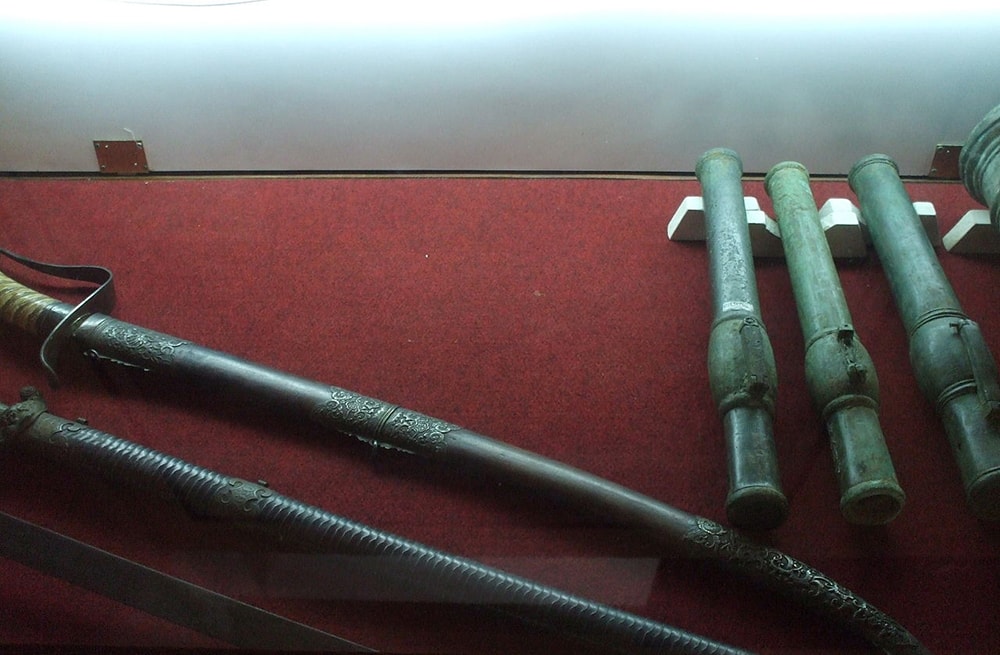 |
| Swords and small guns of the Tay Son army, on display at the Ho Chi Minh City Museum of History. Photo: Wikipedia |
On December 20, Mau Than year (January 15, 1789), the main army reached Tam Diep (Ninh Binh). Within just 6 days from the night of the 30th of the Lunar New Year, the Tay Son army defeated 290,000 Qing troops.
Nguyen Nhac decided to cede leadership to Nguyen Hue so that the Tay Son dynasty would no longer be divided. Quang Trung became the supreme leader and established great strategies to completely defeat the remaining opposing forces. The cause of unifying the country was very close when on July 29, Nham Ty year (September 16, 1792), Emperor Quang Trung passed away.
Nghe An and Tay Son
From 1786 to 1788, the Tay Son army marched through Nghe An 4 times, and in fact, since 1786, this area has been under Tay Son's control. Tay Son - from a peasant uprising developed into a large national movement, overthrew the regimes of Lord Nguyen in Dang Trong, King Le - Lord Trinh in Dang Ngoai, defeated the invasion of the Qing and Siamese invaders, eliminated the division of the country, deeply and strongly impacted the political attitudes of many social classes.
First of all, it must be said that in the Tay Son army, there were many Nghe people who participated and made important contributions. On the journey to the North to defeat the Qing army, in just 10 days of stopping in Nghe An, the Tay Son insurgents had 50,000 more people joining. This proves the attitude of the people. In addition, the people of Nghe also contributed a lot of money to the insurgents. The book "Quynh Doi ancient tales of the border" tells that Ho Thi Ai provided money for 3 soldiers each month; Mrs. Nguyen Thi Phat, although poor, still provided 5 soldiers each month...
In the Tay Son uprising, people from Nghe An, whether participating early or late, all tried their best, many of them matured and made important contributions. Participating from the beginning were Admiral Ngo Van So, Admiral Ho Phi Chan (from Can Loc), Admiral Duong Van Tao (Thach Ha), the Le Quoc Cau brothers, Le Quoc Ly, Le Quoc Dam (Anh Son).
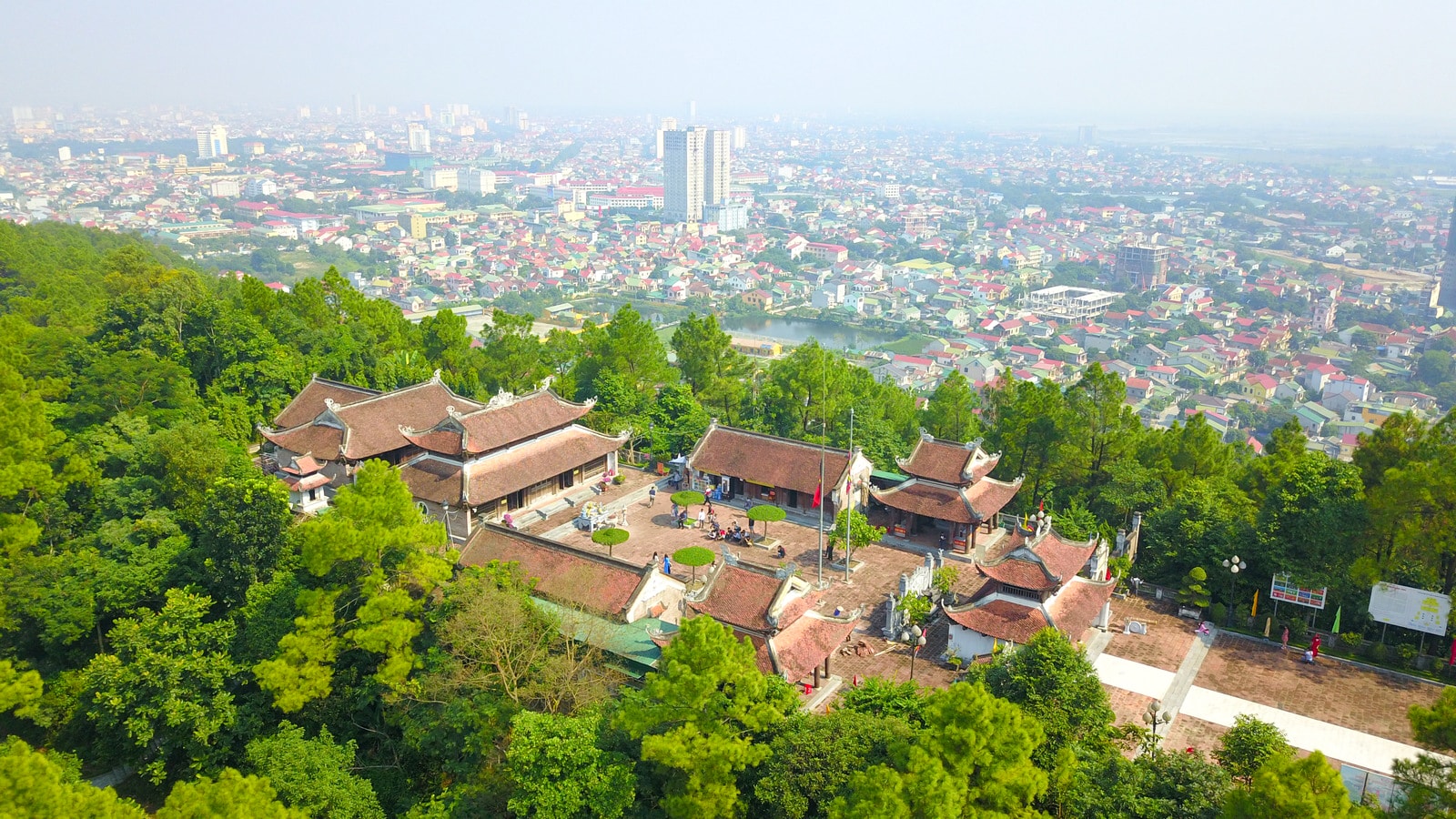 |
| King Quang Trung Temple on Dung Quyet Mountain (Vinh City). Photo courtesy |
Dominated by the idea of loyalty, a group of scholars in Nghe An opposed Tay Son to protect the Le dynasty, typically Tran Doan Tu, Tran Phuong Binh, Nguyen Tien Lam, Le Ban. Even the brothers Nguyen Du, Nguyen Hanh, Nguyen Dieu did not accept Tay Son and intended to oppose. Some others showed an uncooperative attitude such as Nguyen Huy Oanh, Bui Duong Lich... However, many people overcame the narrow-minded idea of loyalty and, together with the majority of the people, supported Tay Son. These were Nguyen Thiep, Phan Huy Ich, Nguyen Ne...
Nguyen Thiep refused Quang Trung's invitation to help the country three times, but in the end, he changed his mind, accepted the offer to work as a colleague, became the Director of the Sung Chinh Institute, in charge of culture and education, and then helped the King find land to establish Phuong Hoang Trung Do in Dung Quyet. King Quang Trung said about him: "One word can build a foundation... not the kind of person who only cares about his own work." Phan Huy Ich was the one who, along with Ngo Thi Nham, was assigned to do diplomacy with the Qing Dynasty and completed the mission excellently. Nguyen Ne (son of Nguyen Nghiem), was an official of the Le Dynasty, followed Tay Son, and was twice a deputy envoy to the Qing Dynasty.
Emperor Quang Trung and the Tay Son Dynasty had special affection for Nghe An, because this was his fatherland, his ancestral land and had an important geopolitical and security position in his strategic thinking. He chose Nghe An to establish the capital of the new dynasty (Phuong Hoang Trung Do citadel), but unfortunately the project was left unfinished. And the people of Nghe An, whether commoners or scholars, mandarins, and literati, loved and supported him very much.King Quang Trung and Tay SonIn the great career of Tay Son, there was a great contribution from Nghe An.

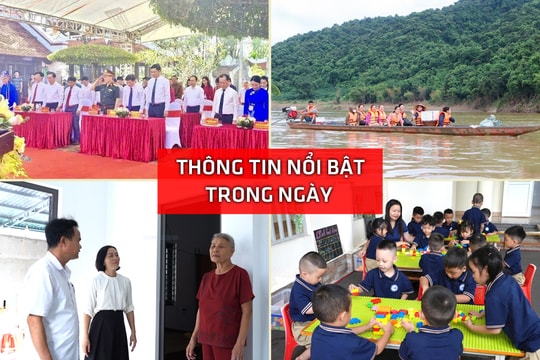
.jpg)
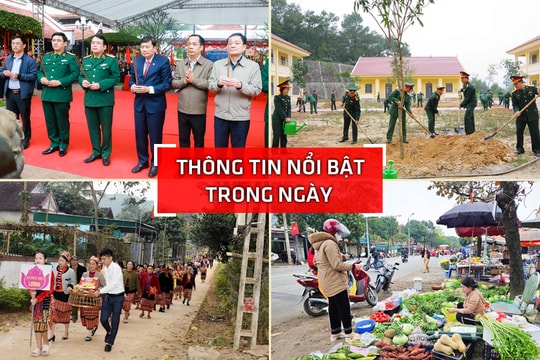
.jpg)
